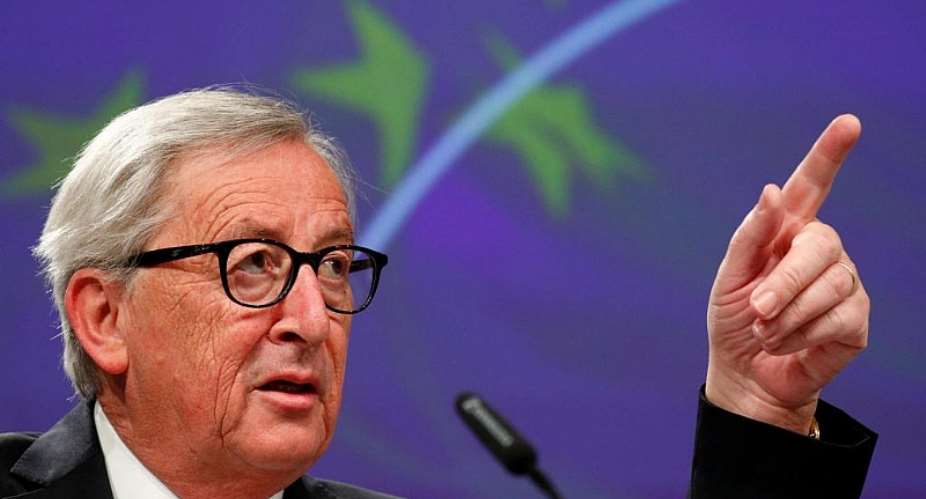As EU leaders meet in Brussels to discuss nominations to some of the bloc's key posts, they could decide to ignore the so-called spitzenkandidat system.
Jean-Claude Juncker's term as president of the European Commission expires in October. Donald Tusk will also step down as president of the European Council, Mario Draghi is leaving his post at the helm of the European Central Bank and the EU's foreign policy arm will need a new boss when Federica Mogherini vacates the post in the autumn.
Under the Spitzenkandidat or lead candidate system introduced in 2014, the Commission presidency goes to the candidate proposed by the parliamentary group that wins the highest number of votes in the EU elections.
However, under EU law the national leaders can instead just pick someone else.
Peter Ludlow is a leading expert on the European Union and founding Director of the Centre for European Policy Studies in Brussels.
He describes the Spitzenkandidat system as “neither democratic nor efficient”. He notes that opinion polls after the 2014 elections suggested that the spitzenkandidats were not recognizable figures and thinks that the system blocks the emergence of serious candidates, such as former prime ministers, who are unwilling to submit themselves to the procedure.
Ludlow predicts that the system will not last much longer, as EU leaders make a habit of ignoring it.
Horsetrading works better
Instead, they are likely to engage in their usual bargaining and dealing.
Unusually, in 2019 vacancies for four top jobs have arisen at the same time so and EU leaders can demand, concede and compromise amongst themselves until they reach a decision.
They will try to balance the interests of northern and southern, eastern and western EU countries. They will aim for a mix of sexes.
Germany is pushing spitzenkandidat Manfred Weber, for the job of EU Commission president. He hails from Angela Merkel's Christian Democrat coalition.
But French president Emmanual Macron will want to capitalize on the momentum behind liberal parties in the ALDE grouping, including his own La République en Marche. They and the Greens did better than predicted when the results were announced on Sunday.
Current EU council president Donald Tusk hopes that there will be agreement on nominations for the key posts by the end of June.
The EU parliament must then ratify the nominations.





 We’ll no longer tolerate your empty, unwarranted attacks – TUC blasts Prof Adei
We’ll no longer tolerate your empty, unwarranted attacks – TUC blasts Prof Adei
 Bawumia donates GHc200,000 to support Madina fire victims
Bawumia donates GHc200,000 to support Madina fire victims
 IMF to disburse US$360million third tranche to Ghana without creditors MoU
IMF to disburse US$360million third tranche to Ghana without creditors MoU
 Truck owner share insights into train collision incident
Truck owner share insights into train collision incident
 Paramount chief of Bassare Traditional Area passes on
Paramount chief of Bassare Traditional Area passes on
 Two teachers in court over alleged illegal possession of BECE papers
Two teachers in court over alleged illegal possession of BECE papers
 Sunyani: Victim allegedly shot by traditional warriors appeals for justice
Sunyani: Victim allegedly shot by traditional warriors appeals for justice
 Mahama vows to scrap teacher licensure exams, review Free SHS policy
Mahama vows to scrap teacher licensure exams, review Free SHS policy
 Government will replace burnt Madina shops with a new three-story, 120-store fac...
Government will replace burnt Madina shops with a new three-story, 120-store fac...
